10 Greek Goddesses of Ancient Mythology

In Greek mythology, the gods and goddesses embodied different aspects of nature and human experience, with the Greek goddesses wielding just as much influence as the Greek gods.
From the majestic Athena, the goddess of wisdom and war, to the enchanting Aphrodite, the goddess of love and beauty, each deity had her own unique gifts. Here, we look at 10 of the best-known Greek goddesses and the roles they played in the Greek myths.
A Brief Overview of Greek Mythology
In ancient Greece, the Greek gods and goddesses were extremely important to every aspect of the people's lives. These divine figures, such as Poseidon and Aphrodite, were central to the fabric of ancient Greek society, shaping people's beliefs and cultural practices.
Many of these gods and their images are iconic symbols even today, such as the all-powerful Zeus and his lightning bolts, and the messenger god Hermes and his winged sandals.
Mount Olympus was the sacred home of the gods and goddesses, where they held court and deliberated over the affairs of mortals. Meanwhile, the River Styx was the boundary between the world of the living and the underworld, also known as the realm of the Greek god Hades, guarded by a three-headed dog called Cerberus.
10 Greek Goddesses
Women played an important role in the Greek pantheon in ancient Greece, and many of the Greek gods had a female counterpart who possessed different but equal powers. Here are 11 Greek goddesses who still influence our culture today.
1. Athena
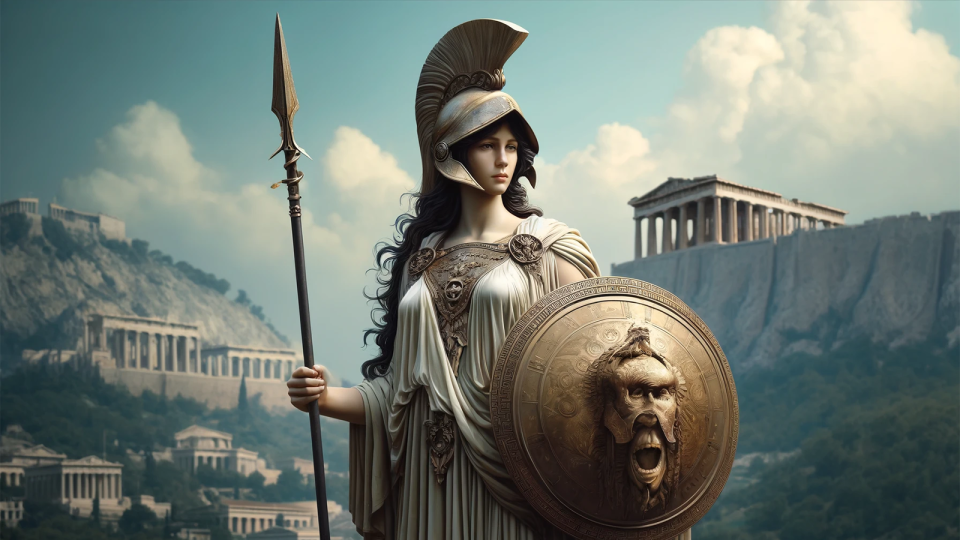
Known as the patron goddess of Athens, Athena was born fully grown from the head of her father, Zeus. The ancient Greeks often depicted her with a shield and spear, symbolizing her role in battle strategy and protection.
The olive tree was a sacred symbol of this Greek goddess, representing peace, wisdom and prosperity.
2. Aphrodite

The epitome of beauty and desire, the Greek goddess Aphrodite captivated the hearts of gods and mortals alike. As the goddess of love and fertility, her influence extended to matters of passion and romance in ancient Greece.
Legend has it that Aphrodite emerged from the sea foam, embodying the raw energy of the ocean's waves. Through her love affair with Ares, the god of war, Aphrodite became the mother of Eros, the god of love.
3. Artemis
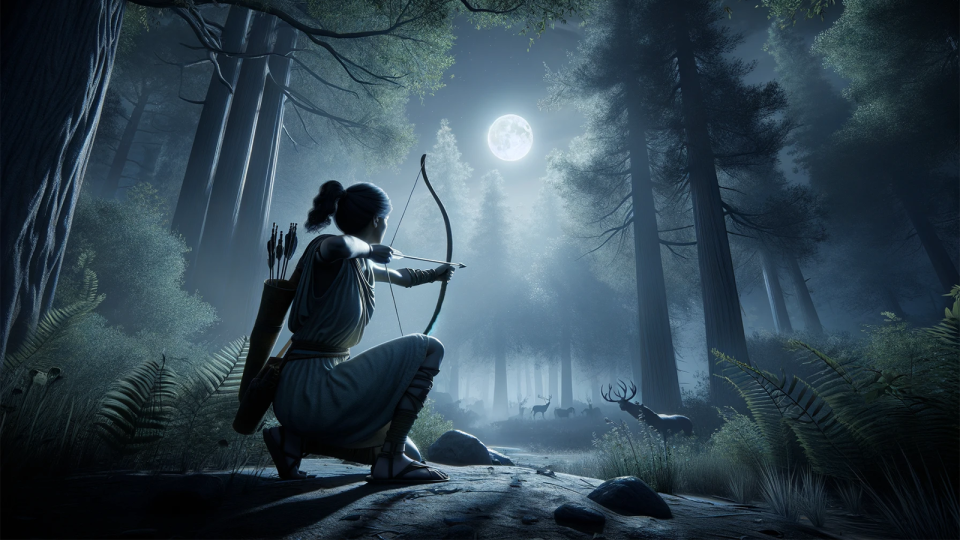
The twin sister of Apollo, Artemis was the Greek goddess of the hunt, wilderness and childbirth. The ancient Greeks usually depicted her with a hunting dog and bow. In art, as in her myths, this Greek goddess roamed the forests with her nymph companions, fiercely protecting wildlife and young maidens.
4. Demeter
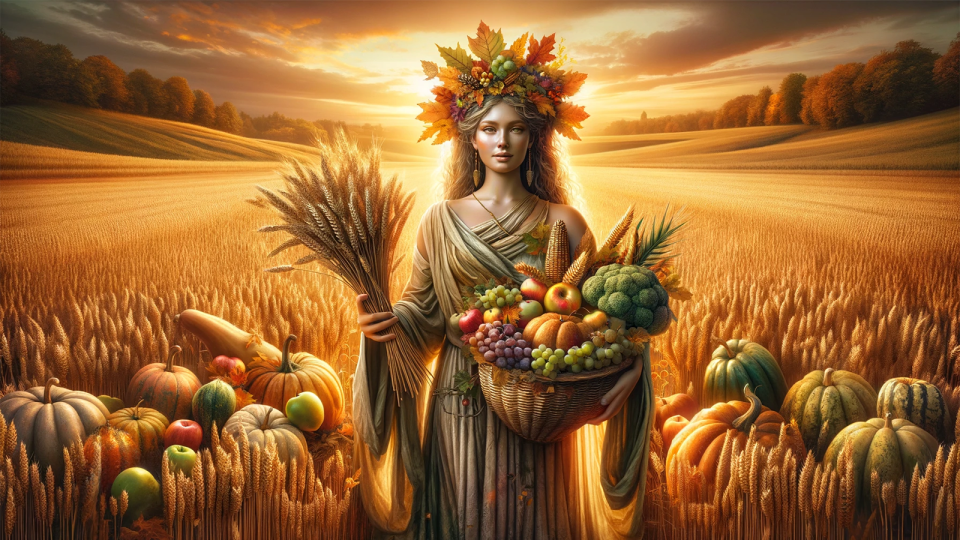
Revered as the Greek goddess of agriculture and fertility, Demeter was responsible for the bountiful harvests that sustained ancient Greek society. Her grief over the abduction of her daughter Persephone by Hades led to the creation of winter, a narrative that symbolized the cycle of life, death and rebirth.
5. Gaia
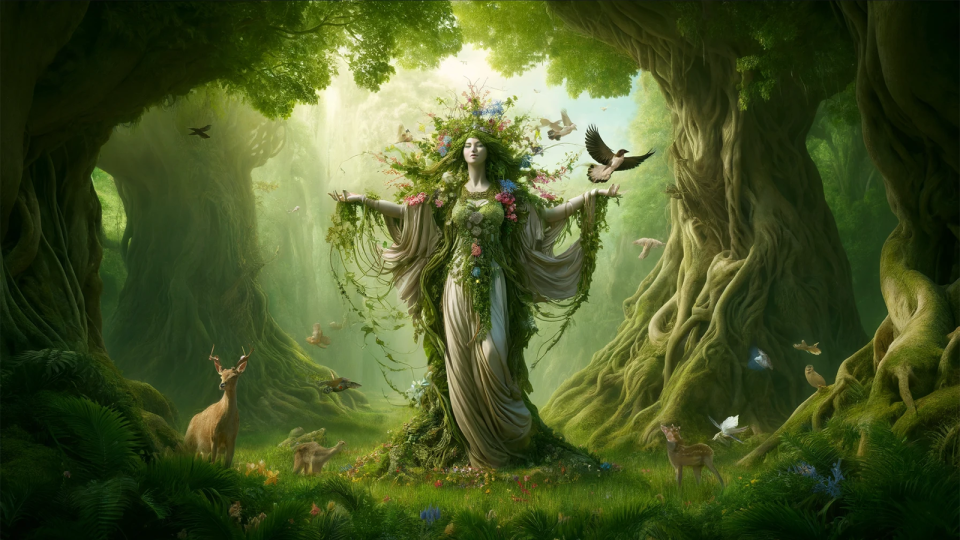
Sometimes seen as the Greek goddess of the earth, Gaia was revered as the mother of all living beings. According to Hesiod, she birthed the titans who preceded Zeus and the other gods of Olympus.
Gaia served as the ancient Greek people's version of Mother Earth and represented the interconnectedness of life.
6. Hecate
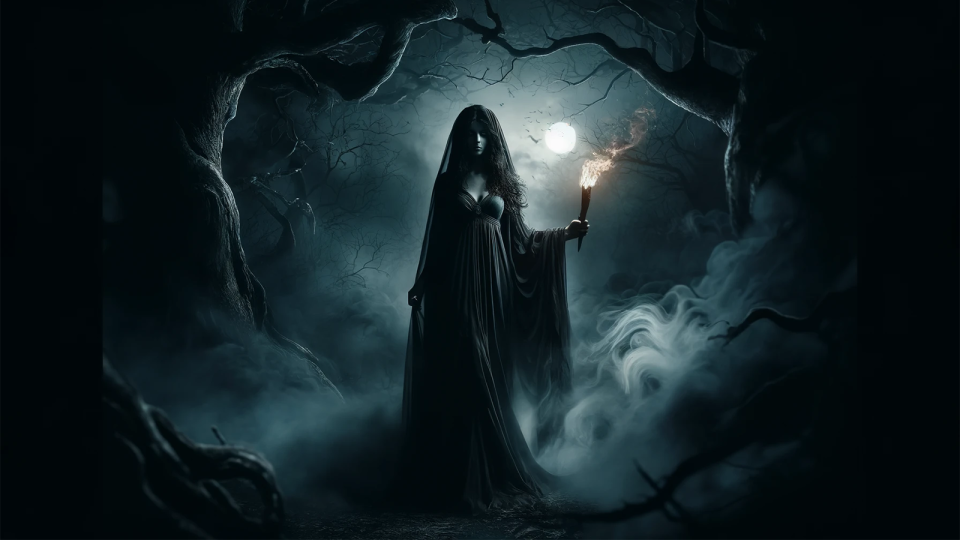
The goddess of magic and witchcraft, Hecate was a mysterious figure with the ability to see into the depths of the underworld. People who sought guidance in matters of the occult worshipped this Greek goddess and believed her to roam the earth accompanied by eerie hounds.
7. Hera
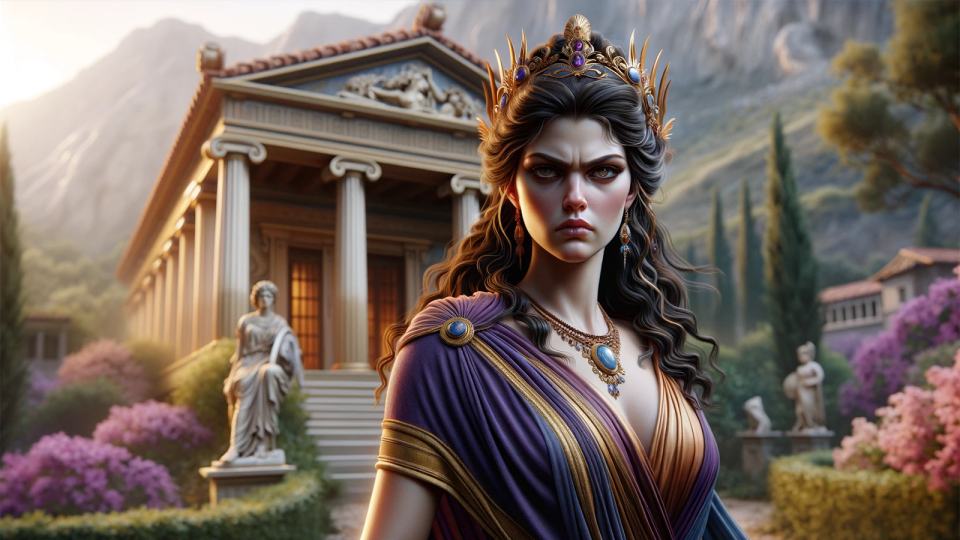
As the wife of Zeus and being his female counterpart, Hera was the queen of the gods. Despite the fact that she presided over marriage, women and family, the ancient Greeks often portrayed Hera as a formidable figure, fiercely protecting her domain and punishing those who defied her.
This Greek goddess was responsible for imposing 12 labors upon the legendary Greek hero Heracles, also known as Hercules in Roman mythology.
8. Hestia
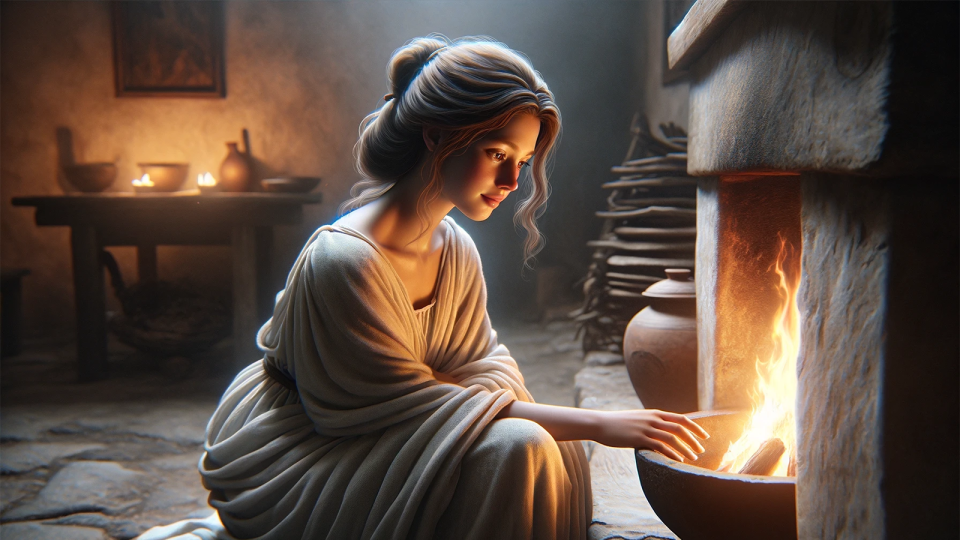
The Greek goddess of the hearth and home, gentle Hestia epitomized the warmth and comfort of domestic life.
Despite being a minor goddess, she held an important place in every ancient Greek household, where people kept a sacred flame burning to honor her, symbolizing good health and prosperity.
9. Nike
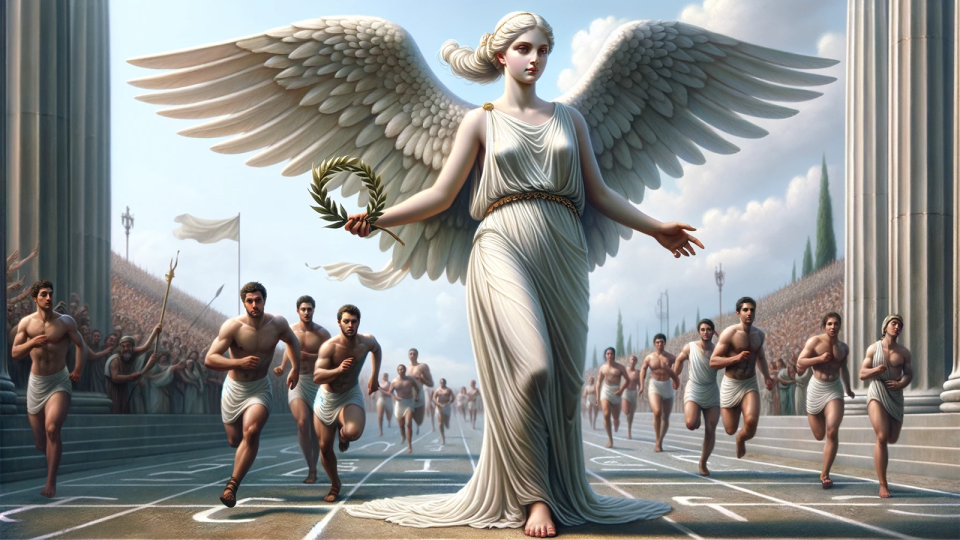
As the Greek goddess of victory, Nike was responsible for granting triumph to warriors and athletes. In images she often had wings and held a laurel wreath. Even today, as a symbol of victory, she appears on countless monuments and temples dedicated to her glory or to people's endurance.
10. Persephone
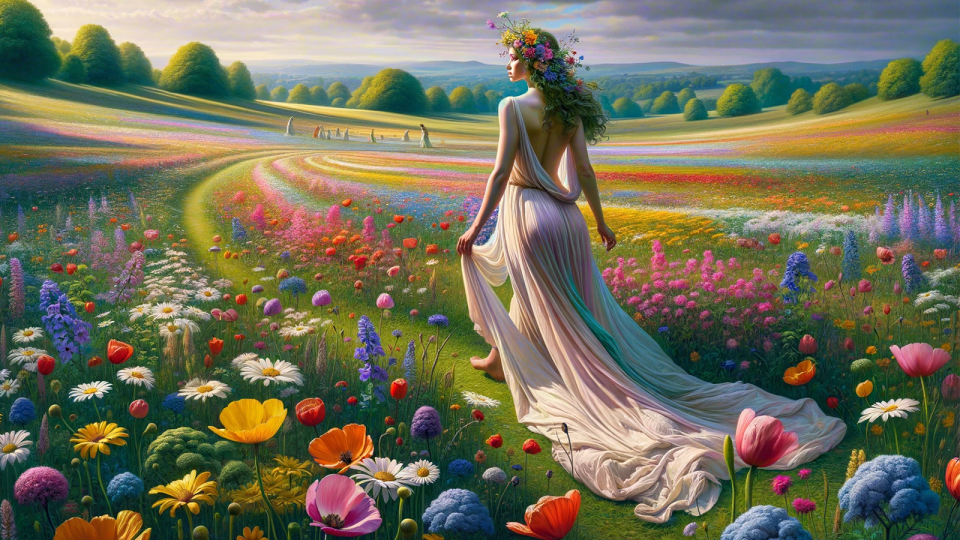
The daughter of Demeter and queen of the underworld, the Greek goddess Persephone symbolized the changing seasons and the cycle of life and death. Her abduction by Hades was responsible for creating winter each year, while her eventual return to the earth marked the transition from winter to spring.
Relationships Between Gods and Humans
In the Greek myths, the gods and goddesses sometimes taught humans important lessons, descending from Mount Olympus to impart knowledge, skills and wisdom or intervene in other ways.
Many gods and goddesses were said to be born to a mortal mother. For example, the mortal woman Semele was the mother of the god Dionysus (Zeus was his father).
People believed the gods and goddesses held influence over major events. When the Greeks and the city of Troy fought the Trojan War — a central event in Greek mythology that may or may not have really occurred — many figures in the Greek pantheon took sides in the conflict, influencing the war's outcome.
The Gods and Goddesses as Symbols
Through Greek mythology, the ancient Greeks sought to make sense of natural phenomena and human emotions. For example, the story of Demeter and Persephone's separation and reunion explained the changing seasons, while Athena's wisdom provided a model for living in times of both war and peace.
The ancient Greek gods and goddesses also served as symbols of divine authority and power, reflecting the values and ideals of ancient Greek society.
For instance, Athena, as the patron goddess of Athens, represented the city-state's commitment to democracy and civic duty. Similarly, Zeus, as the king of the gods, stood for order and justice.
The Role of the Greek Gods in Everyday Life
In addition to their religious significance, the ancient Greek gods and goddesses played a vital role in everyday life in ancient Greece, serving as patrons and protectors of different parts of people's lives.
For example, Artemis, the twin sister of Apollo, was revered as the goddess of the hunt and wilderness, offering guidance and assistance to hunters. Hermes, the messenger god, facilitated communication and trade among the mortals. Meanwhile Hestia, the goddess of the hearth, safeguarded the home and family.
People worshipped the Greek gods and goddesses through elaborate rituals and festivals, which reinforced social identities within the ancient Greek communities.
The Olympic Games, which the people held in honor of Zeus at Olympia, were not only a celebration of athleticism but also a religious ceremony dedicated to their king of the gods.
Greek Gods and Goddesses and Animals
Greek mythology is populated with various wild animals, some of which were associated with specific gods and goddesses, such as the lion of Hera, the stag of Artemis, the owl of Athena and the dolphin of Apollo, among other sacred animals.
These creatures served as symbols of the gods and goddesses' power and attributes.
Meanwhile, the water was home to various sea monsters, which the people respected as mythical Greek figures in their own right, such as the famous sea serpent Hydra and the nymph-turned-monster Scylla.
Greek Gods in the Arts
Greek mythology has been a source of inspiration for artists throughout the ages. Novelists, playwrights, painters, composers and others have found muses in these Greek stories, reshaping these narratives and passing them down through the generations.
Homer's "Iliad" and "Odyssey," two of the best known examples of epic poetry, both recount the deeds of gods and heroes, featuring grand narratives with roots in Greek myths. The legendary playwright William Shakespeare frequently referenced Greek mythology in his works, including his comedy "A Midsummer Night's Dream."
We created this article in conjunction with AI technology, then made sure it was fact-checked and edited by a HowStuffWorks editor.
Original article: 10 Greek Goddesses of Ancient Mythology
Copyright © 2024 HowStuffWorks, a division of InfoSpace Holdings, LLC, a System1 Company

